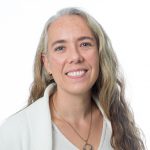 In 2011, the first Baby Boomers reached the age of 65. According to Dr. Luke Rogers, chief of the Census Bureau’s Population Estimates Branch, the 65-and-older population has grown by over a third since 2010. And no other age group has grown so quickly.
In 2011, the first Baby Boomers reached the age of 65. According to Dr. Luke Rogers, chief of the Census Bureau’s Population Estimates Branch, the 65-and-older population has grown by over a third since 2010. And no other age group has grown so quickly.
As more Americans enter their later years, there is an increasing need for more geriatricians. Yet, the specialty is currently in decline. In a recent JAMA article, Jerry H. Gurwitz, MD wrote that even though the over 65 population grows each year, the number of geriatric medicine practitioners is actually decreasing.
According to Gurwitz, the number of board-certified geriatricians in the US has fallen in the past two decades. Some of this decline is due to physician retirements. Yet other physicians have chosen not to recertify in the speciality. Furthermore, there are fewer geriatrics fellowship matches resulting in fewer trainees.
How Many Geriatricians Does America Need?
The number of older adults is increasing every year. In 2020, there were 56.4 million people age 65 and older. By 2030, that group is expected to be 74.1 million strong. As the population continues to age, the nation needs many more healthcare providers who are trained in geriatric care.

Dr. Chrissy Kistler recently told Fox News that there are currently about 7,500 licensed geriatricians in the US. But as more Americans age, she said the nation will need more than 30,000 geriatric to meet their care needs. Dr. Kistler also highlighted Geriatric Workforce Education Programs whose goal it is to equip the healthcare community to care for older adults.
Training Opportunities in Geriatric Care
To meet this growing need, the UNC Division of Geriatric Medicine trains future leaders in geriatrics to meet the needs of America’s aging population. As such the Division offers training opportunities in geriatric care such as the Fellowship in Geriatric Medicine, the MSTAR summer research program, the Care of the Older Patient Scholarly Concentration, and more. At the same time, the Center for Aging and Health offers many professional training opportunities through the Carolina Geriatric Workforce Enhancement Program (CGWEP).
Learn more about the Division of Geriatric Medicine and The Center for Aging and Health and the training opportunities they offer.